Welcome to another issue of The Newport Cornucopia where we dig through the newspapers archives for interesting news articles and adverts. All articles are posted verbatim and most headlines are original (headlines in quotes are my own).

'Fire at Clarence Terrace'
On Wednesday evening last, between seven and eight o'clock, the female servant of Mr. Slade, who resides at Clarence Terrace, near the Newport bridge gate discovered that one of the bedrooms was on fire, and on making an alarm, a neighbour named Samuel Buckland, who was then passing by, rushed into the house and ran upstairs to the room, which was full of smoke and flames. The bed and bed clothes having taken fire, as well as the curtains of the bed and windows, nearly all of which were destroyed, with great exertion and no little danger,
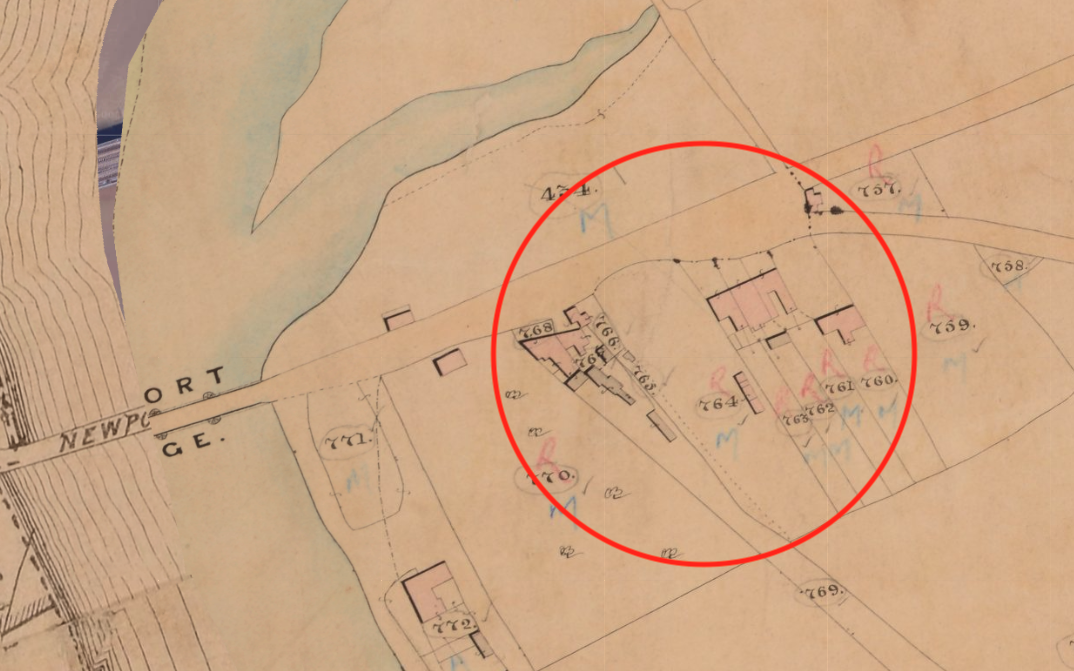
Buckland succeeded in throwing out the bed and bed clothes, and tore down the remaining fragments of the curtains. Having soon obtained some water he extinguished the fire, which had communicated with the other furniture in the room, which, with some very valuable pictures, were much damaged.
Had the fire not been fortunately discovered, and so promptly arrested in its progress, the roof would have been in a blaze in a few minutes more, as the ceiling, from the great heat, had begun to fall. The servant, in attempting to extinguish the fire with her apron, was severely burnt.
— Monmouthshire Merlin, 20th November, 1841
'A Mention of Clarence Cottage'
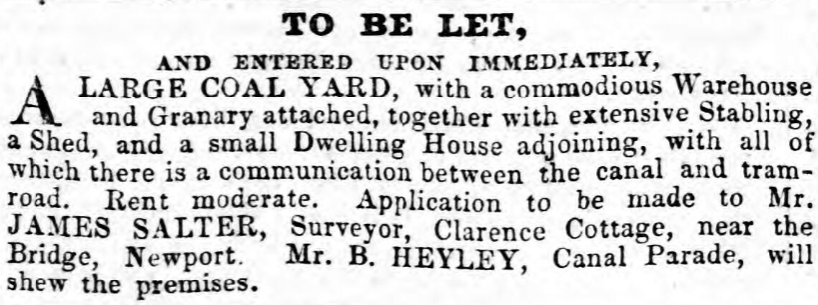

Orangeism In Newport
Persons who masticate oranges in our streets, should not extend the sliding scale by placing feel in every body's way. Orangeism should not be encouraged to this extent; for broken limbs-as well an broker heads—are now and then the results of falls from this cause. As prevention is better than a cure — persons who indulge in Orangeism, in order to eschew all danger from sliding over peelings should masticate both pulp and rind or, if they do not like to do so, let them take their fruit home, and divide with those in the Home Office.
— Monmouthshire Merlin, 3rd January, 1846
Orange Peel
A poor old lady in this town, who was walking along the pavement on Tuesday last, stepped upon a piece of orange peel, and fell heavily, experiencing much injury; but fortunately breaking no limb In Newcastle, and many other places, it is now usual to prosecute and fine persons guilty of throwing orange peels on the pavements and we apprehend, from carelessness in this way at Newport, it will be necessary to enact a bye-law, obviating the nuisance in this town. We are requested to state that there is no foundation whatever for the report, which has been circulated, that Mr. Greaves, of the Oxford Circuit, has been appointed Assistant Poor Law Commissioner.
— Monmouthshire Merlin, 9th May, 1846


Gambling on a Sunday
John Donovan and John Hayes were charged with playing at pitch and toss, on Sunday last. Cautioned and discharged on payment of the station fees.
— Monmouthshire Merlin, 4th July, 1855
A Squabble Over a Glass of Beer
Daniel Keefe and Edward Dowling, were charged with assaulting Edward Long, who said that the defendant Keefe took up his (prosecutor's) glass of beer at the Albion Inn, last Saturday week some hot conversation ensued between them, and when they went outside, both defendants began to kick the prosecutor. The case was adjourned until Wednesday, both defendants being admitted to bail.
— Monmouthshire Merlin, 1st March, 1878
Both returned two days later...
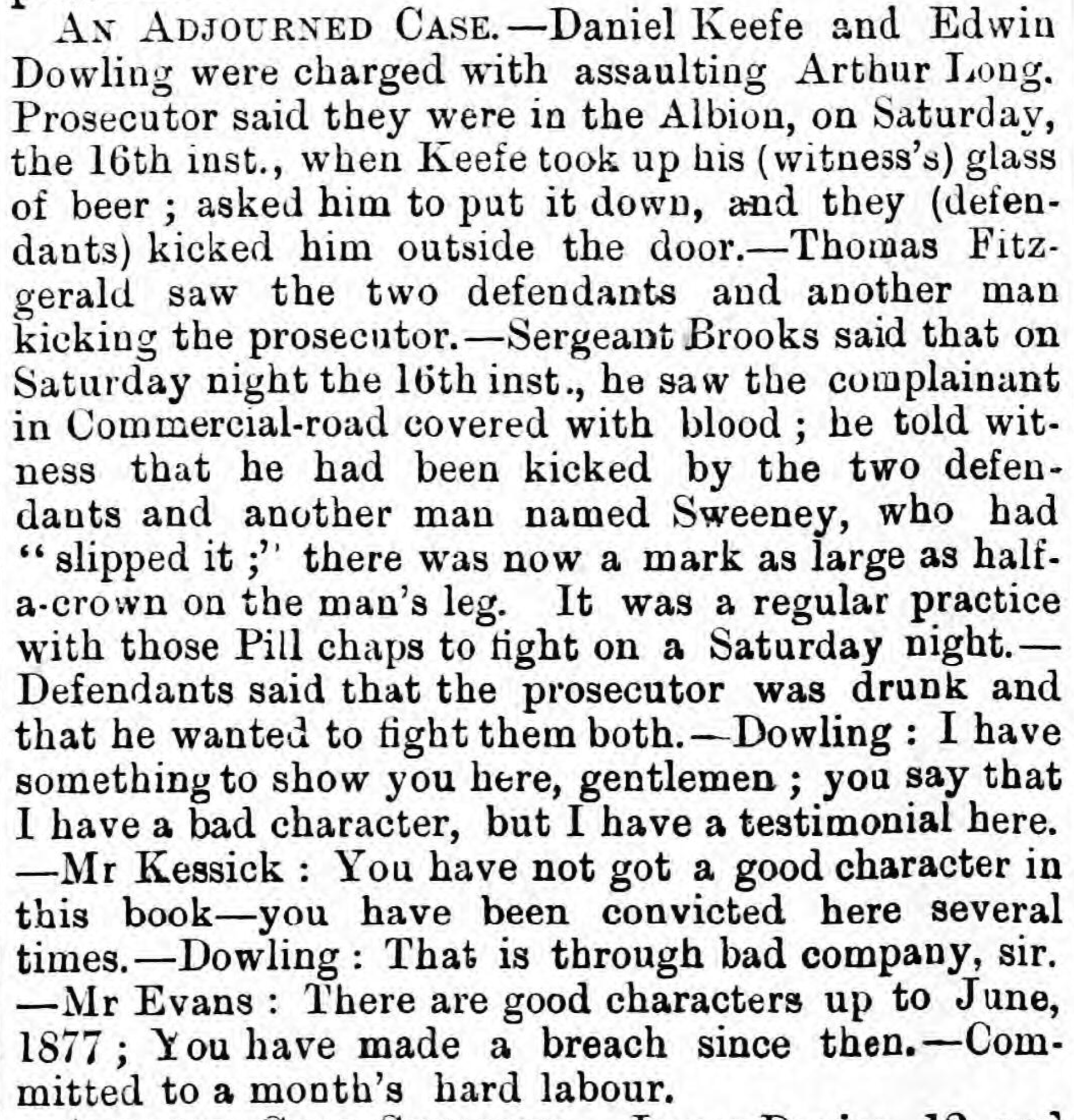
Stealing Oranges
Benjamin Pritchard and John Lynch, two boys, were charged with stealing a quantity of oranges from Paul Clifford's stall, in the Newport Market. James Rogers deposed to seeing the lads take the oranges, and giving the two boys into custody. Clifford said he knew nothing about the theft.
Ordered to be locked up for a day, and to receive 12 strokes with the birch rod.
— Monmouthshire Merlin, 1st March, 1878
A Beastly Fellow
Robert Miles, was charged with being drunk, and exposing his person, in Commercial-road, on Saturday night. Fined 10s 6d or 14 days.
— Monmouthshire Merlin, 1st March, 1878
A Happy Couple
Edwin Manship, was charged under warrant with assaulting his wife, Charlotte Manship. Prosecutrix said her husband had struck her and pulled her hair off her head. Fined 5s, and bound over to keep the peace for six months.
— Monmouthshire Merlin, 1st March, 1878

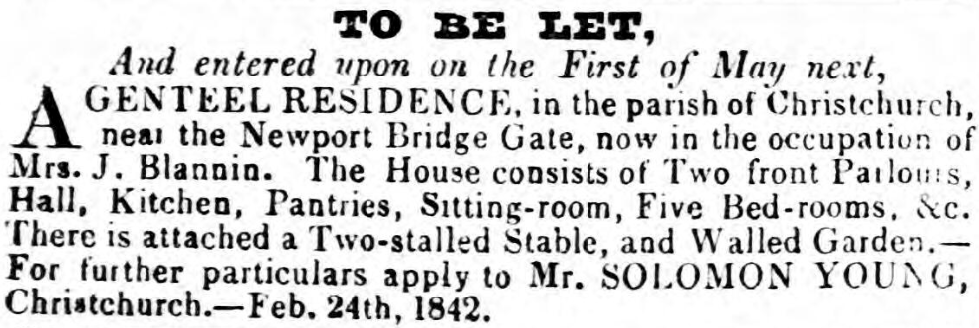

'Mr Wall Falls Over a Wall'
A man, named Wall, residing on the Cardiff-road, got so very drunk on Thursday night, that in leaving the house for a few moments, where he had imbibed such a large quantity, he fell over a wall, and was precipitated to the ground, which was covered with large stones — a depth of about ten feet. He was taken up for dead but we have since heard, that although much hurt, being cut and bruised very severely, there was no danger of his forfeiting his life this time. We have heard of other similar hair-breadth escapes.
— Monmouthshire Merlin, 6th June, 1846

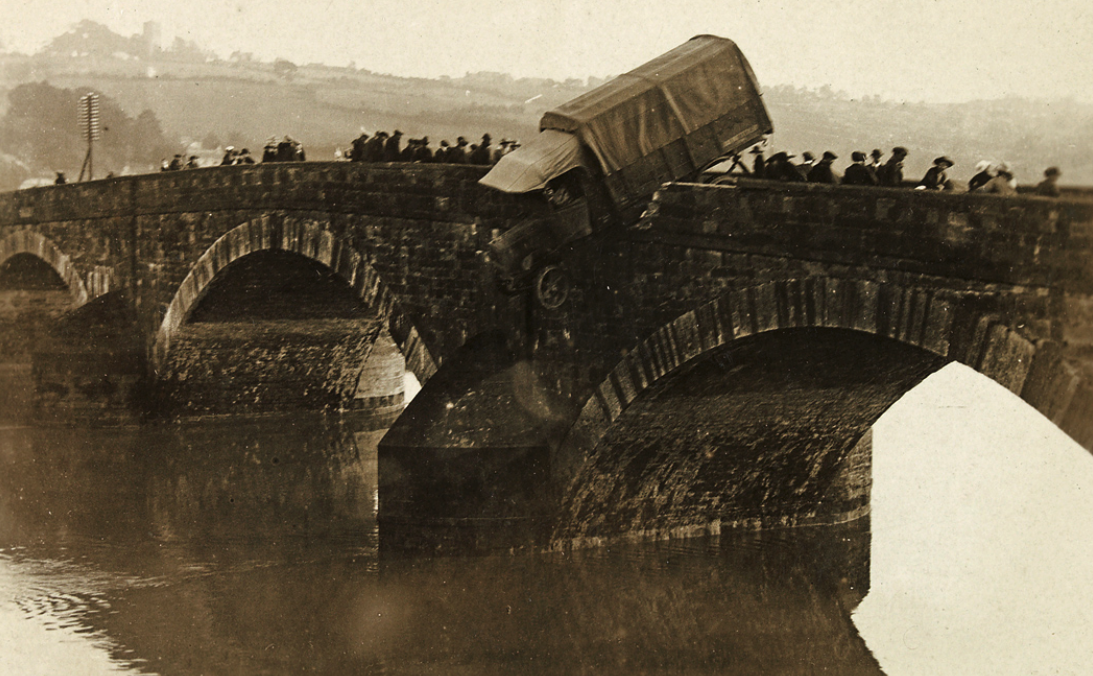

'Footpath to Caerleon'
To the Editor of the Monmouthshire Merlin.
SIR,—If, through the medium of the MERLIN, I succeed in producing any practical result, by directing the attention of the trustees to the bad state of repair in which the footpath is kept between this place and Newport, it will be the means of conferring a great benefit upon very many of her Majesty's poor but most loyal subjects.
Accustomed, as many of us are, to tramp it at all hours, and at all seasons, by daylight and in the dark, in sunshine and in storm, we cannot help desiring some more comfortable mode of transit than that experienced in stumbling over the hills, and down in the vales filled with water, and which abound, more particularly, between the upper part of St. Julian's Wood and the Farm, and again by Beaufort Cottage.
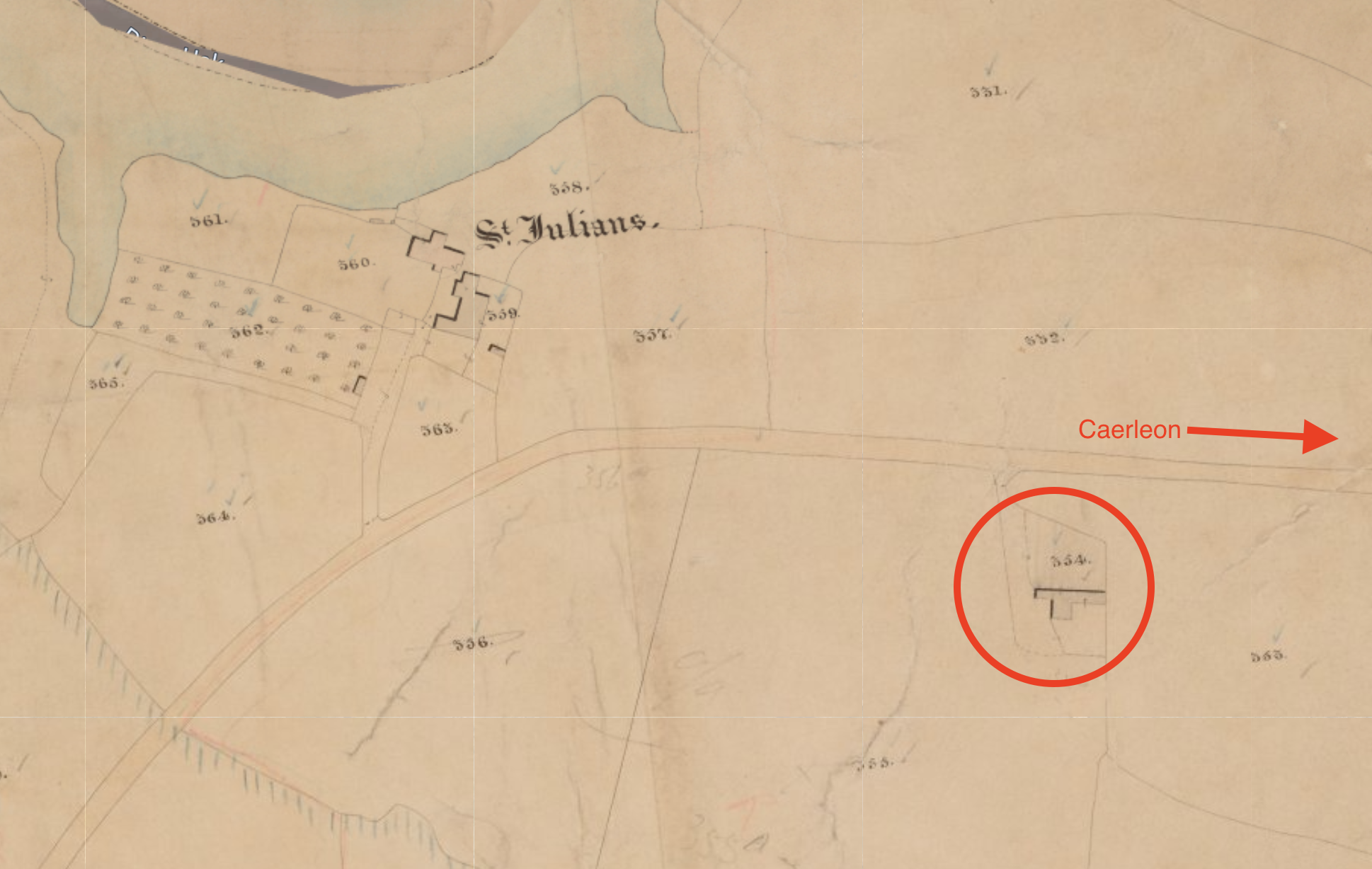
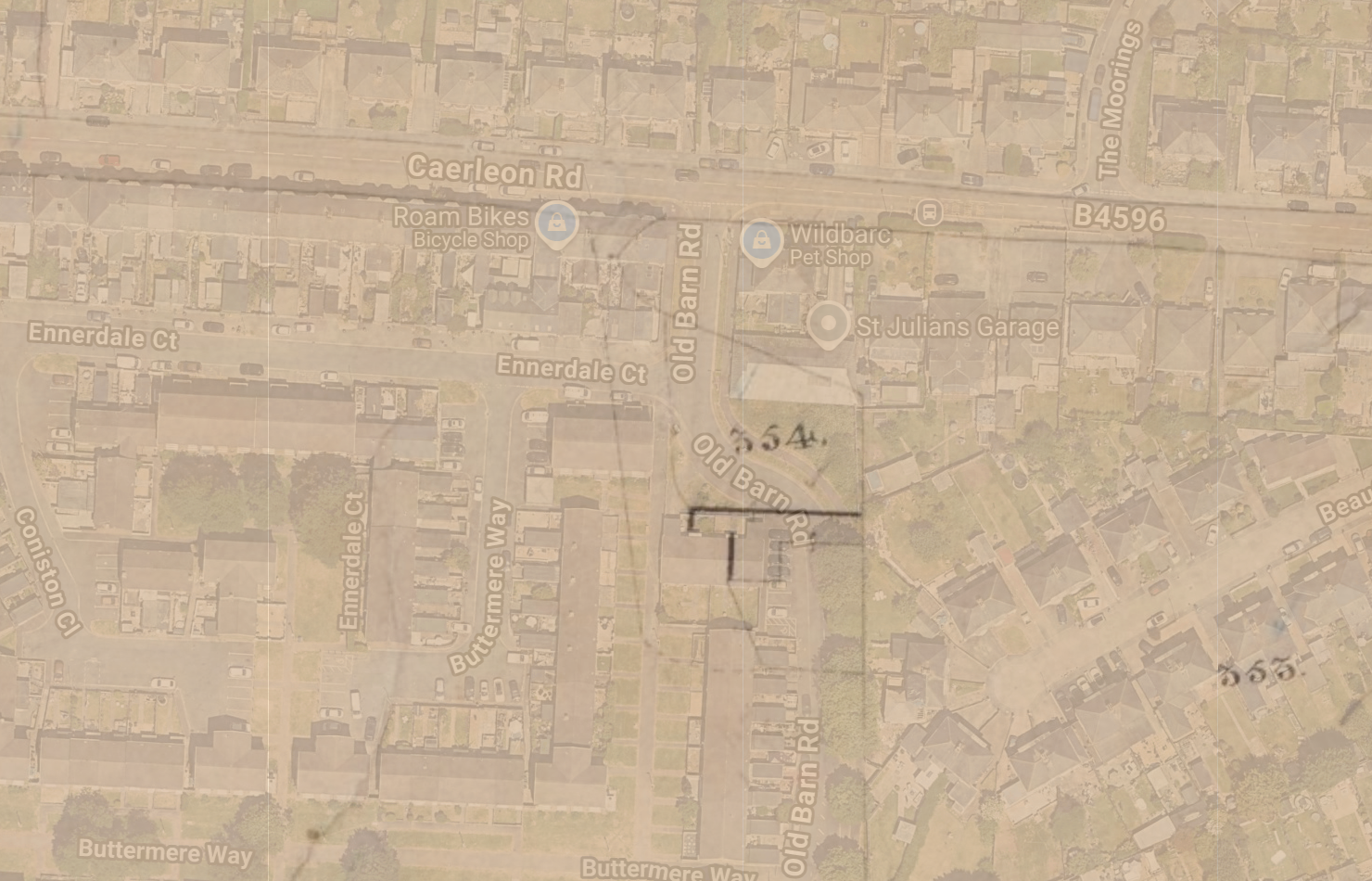
The Beaufort Cottage mentioned in the letter. Interestingly, on the tithe map, the name of the field that housed Beaufort Cottage is called Barn Yard Road which is on the site of the Old Barn. I'd always wondered where that name came from.
To many of those gentlemen, to whose paternal care our ways are entrusted, this footpath must be, I imagine, an article of luxury, in which they indulge at intervals, very few and very far between. I really hope that when they again pass this way they will, if only for novelty's sake, make it a pedestrian excursion, choosing for that purpose a nice wet day for walking in, and dark night for returning. To speak of the benefit that would be conferred by maintaining such a footpath as would, at all times and seasons, give to every one the means of preserving health, is superfluous; no less superfluous would it be to expatiate upon the many natural beauties to which the walk introduces us, and the great boon it would be to all who, like myself, derive health and pleasure from being...
A CONSTANT PEDESTRIAN
Caerleon, October 26, 1848.
— Monmouthshire Merlin, 4th November, 1848

The Golden Goose
Who has not read of the goose that laid golden eggs, and wished, also, to possess such a domestic bird? Rumour says that the worthy landlord of a chief inn at Pillgwenlly, was last Saturday dreaming of such a prize, in his pleasant afternoon nap and lo on Sunday, when carving a fine goose on the dinner table, he actually discovered a gold ring, in which a diamond sparkled, deeply embedded in the flesh upon the back It had been grown over, and only revealed itself when laid open by the carving knife.
— Monmouthshire Merlin, 4th November, 1848

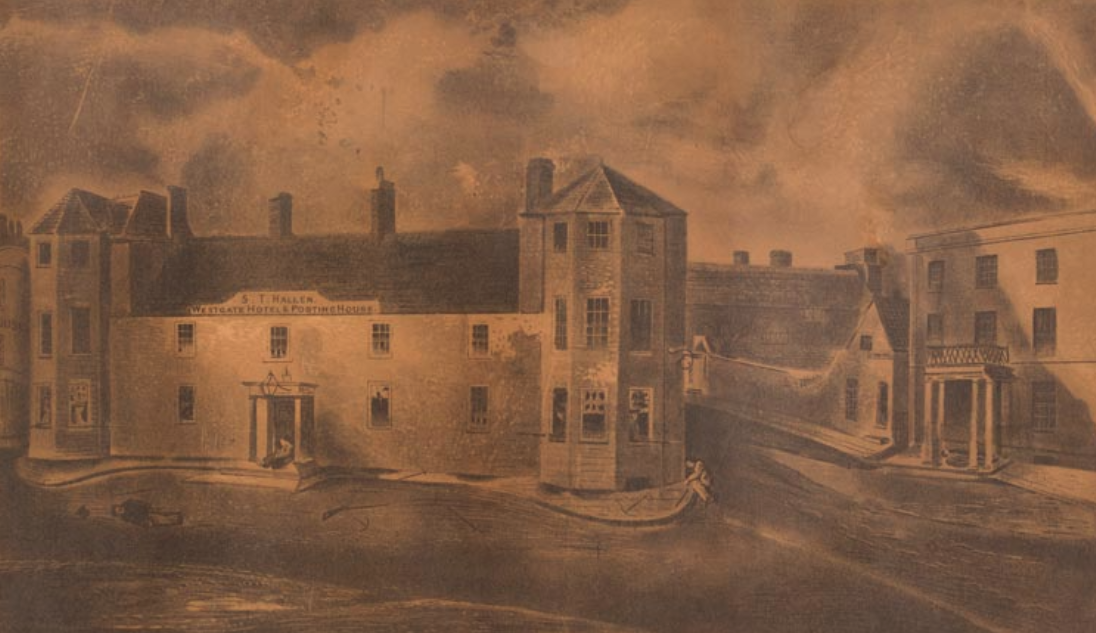
S.T. Hallen was the proprietor of the Westgate Hotel and his name can be seen above the door in the painting above. He had been the owner of the hotel since 8th May, 1837 (see below) until his death in July 1883.
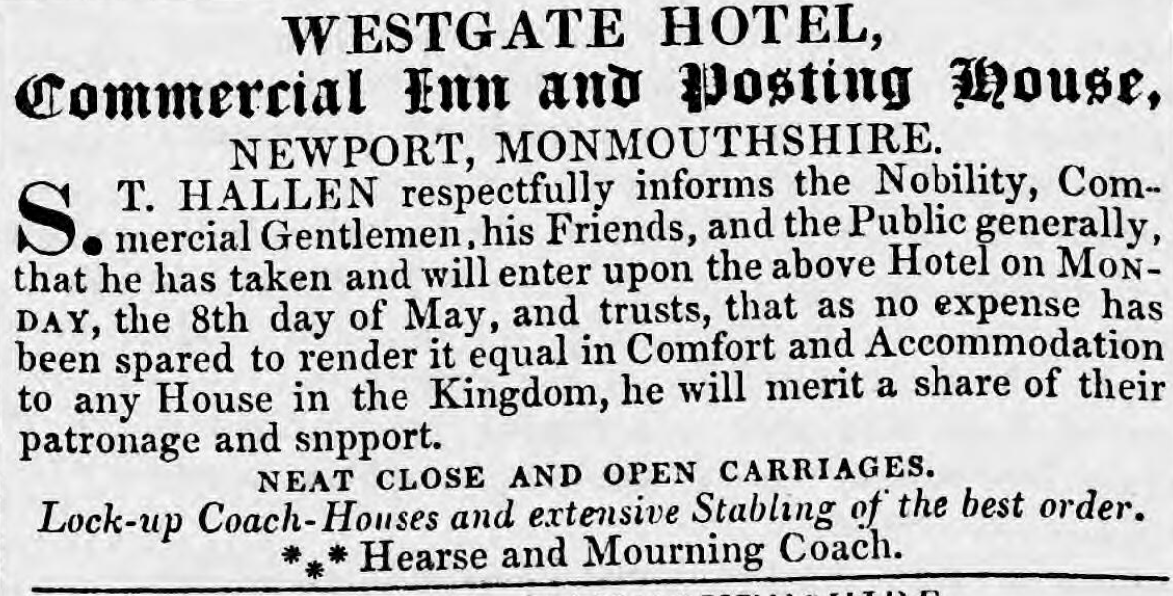

A New Pound
The otherwise pleasant locality of the Friars, near Stow-hill, and the shady lane leading thence to the Cardiff-road, known by the name of the Old Trip, was for a considerable number of years, rendered unsightly and unhealthy by the foul pit and the worse pound by the side of the road, in the neighbourhood described, which sent forth their poisonous exhalations every summer, to a dangerous degree.
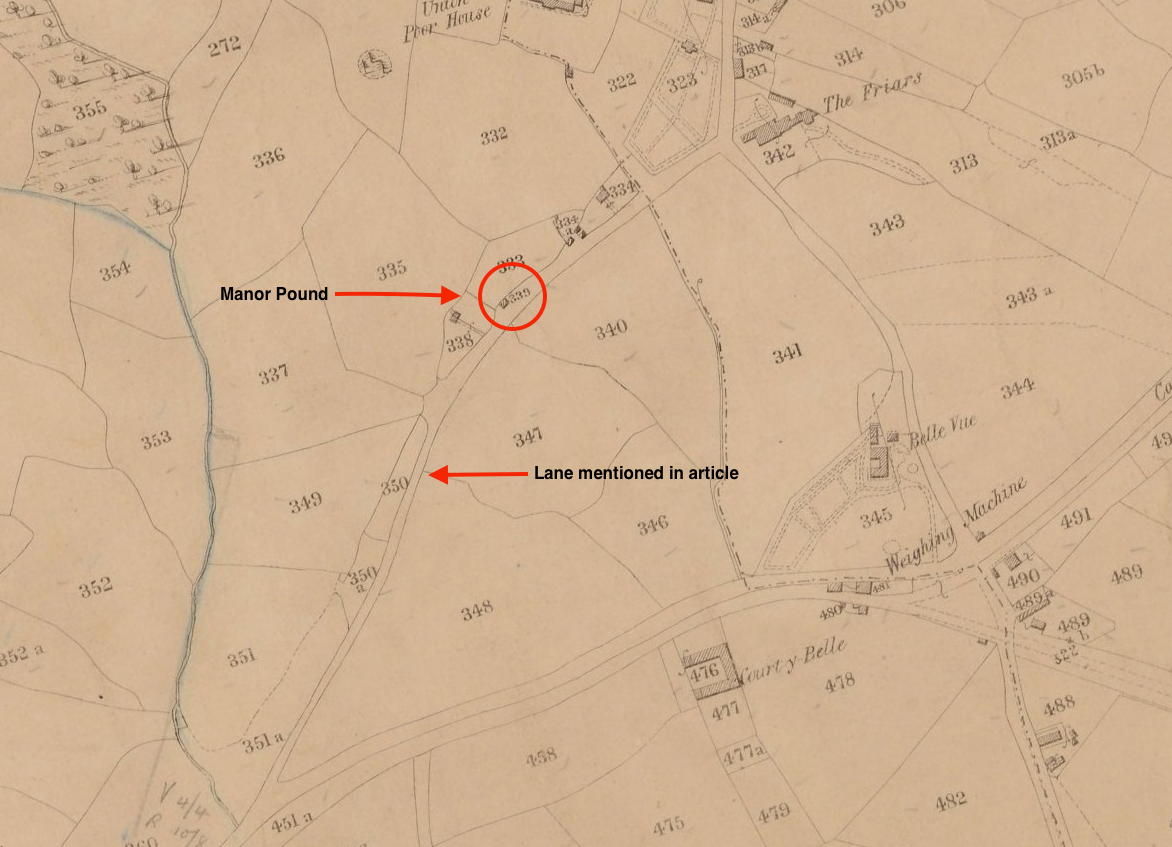
We are glad to record that the offensive ditch is now walled off from the road, and filled up with earth, forming part of a field, and the old pound has given place to a new one, differently constructed, having its floor elevated on one side, with a drain at the lowest point; and an iron gate, well locked, instead of the insecure old wooden door, the lock of which has been so frequently forced, to suit the wishes of those whose cattle were impounded.
This is as it should be and the green and shady old lane will no longer harbour a source of impurity from which the air might be impregnated with foul and injurious vapours.
— Monmouthshire Merlin, 9th June, 1849



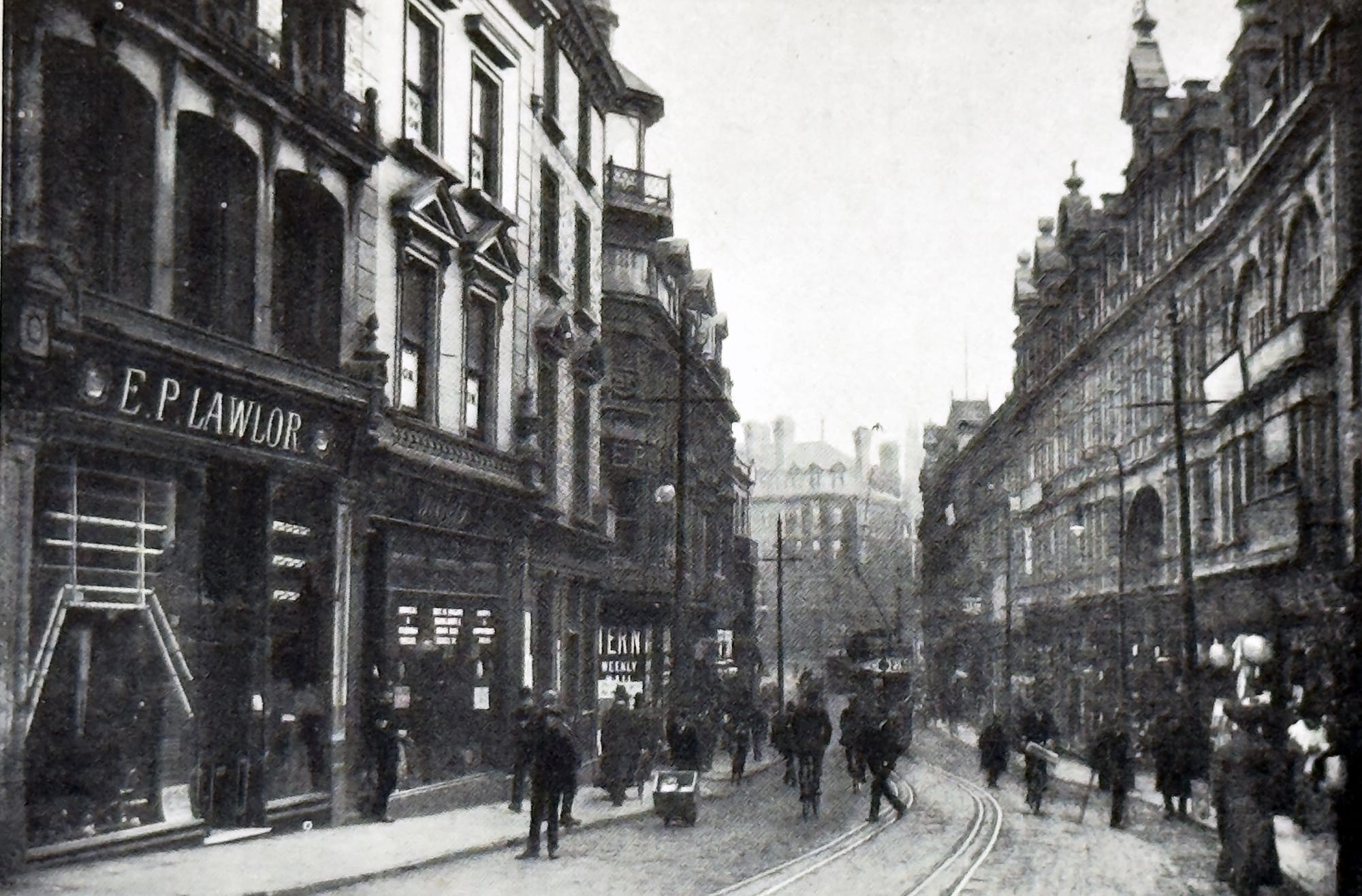

Death by Burning
At Caira House, on Tuesday last, several children were left together in a room while the mother went out to the garden, and on her return one of them, a little boy about two years old, was found enveloped in flames, his pinafore having caught fire by his approaching too near the grate. He expired on Wednesday. Parents should be cautious to have their fireplaces well guarded at this season of the year.
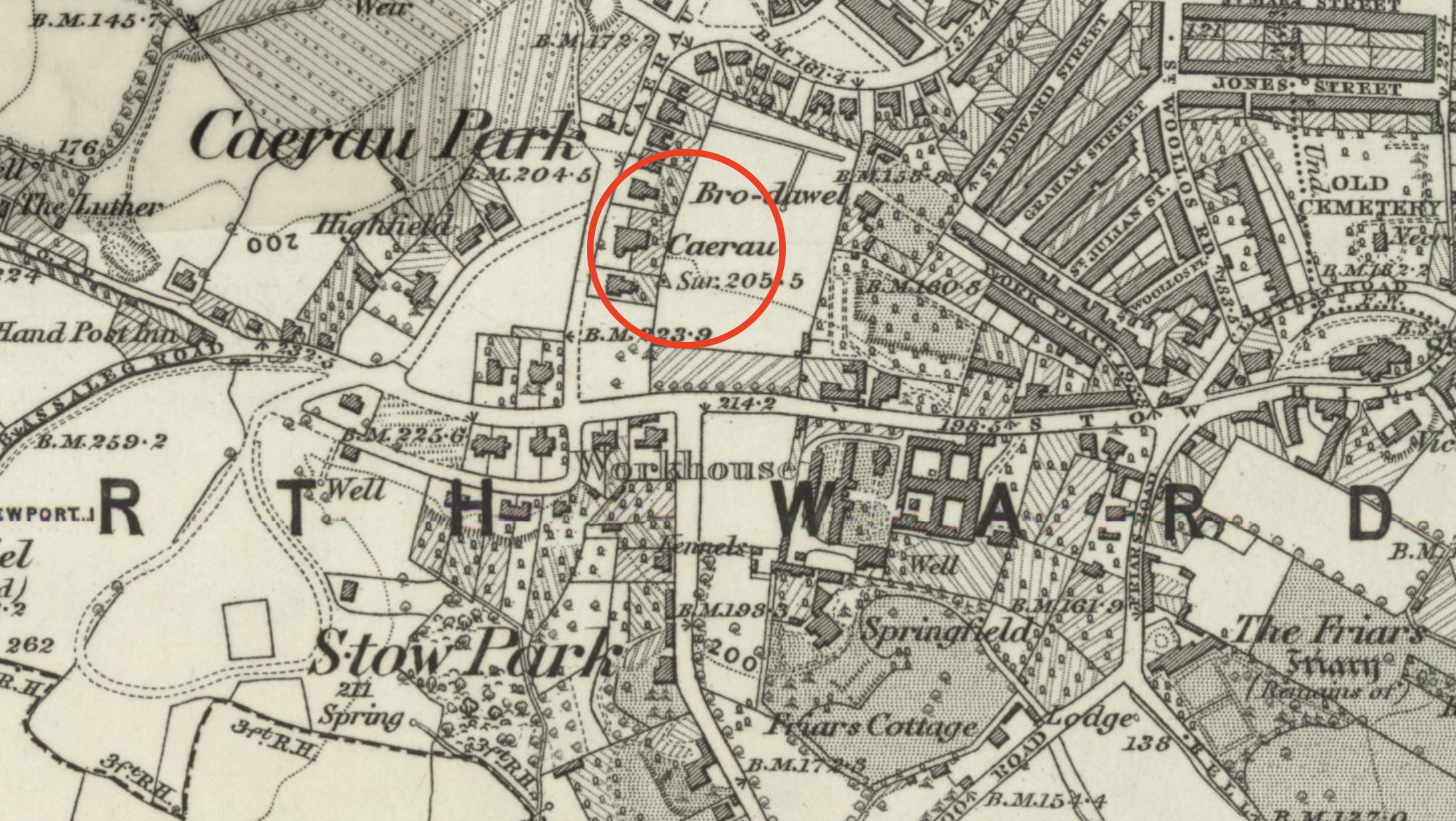
— Monmouthshire Merlin, 4th November, 1848

'Fire on Carpenter's Arms Lane'
A fire broke out on the premises adjacent to the Carpenter's Arms-lane in this town, which was speedily extinguished by the supply of water poured on it by the town engine, from the Water Works Company's plugs.
— Monmouthshire Merlin, 4th November, 1848

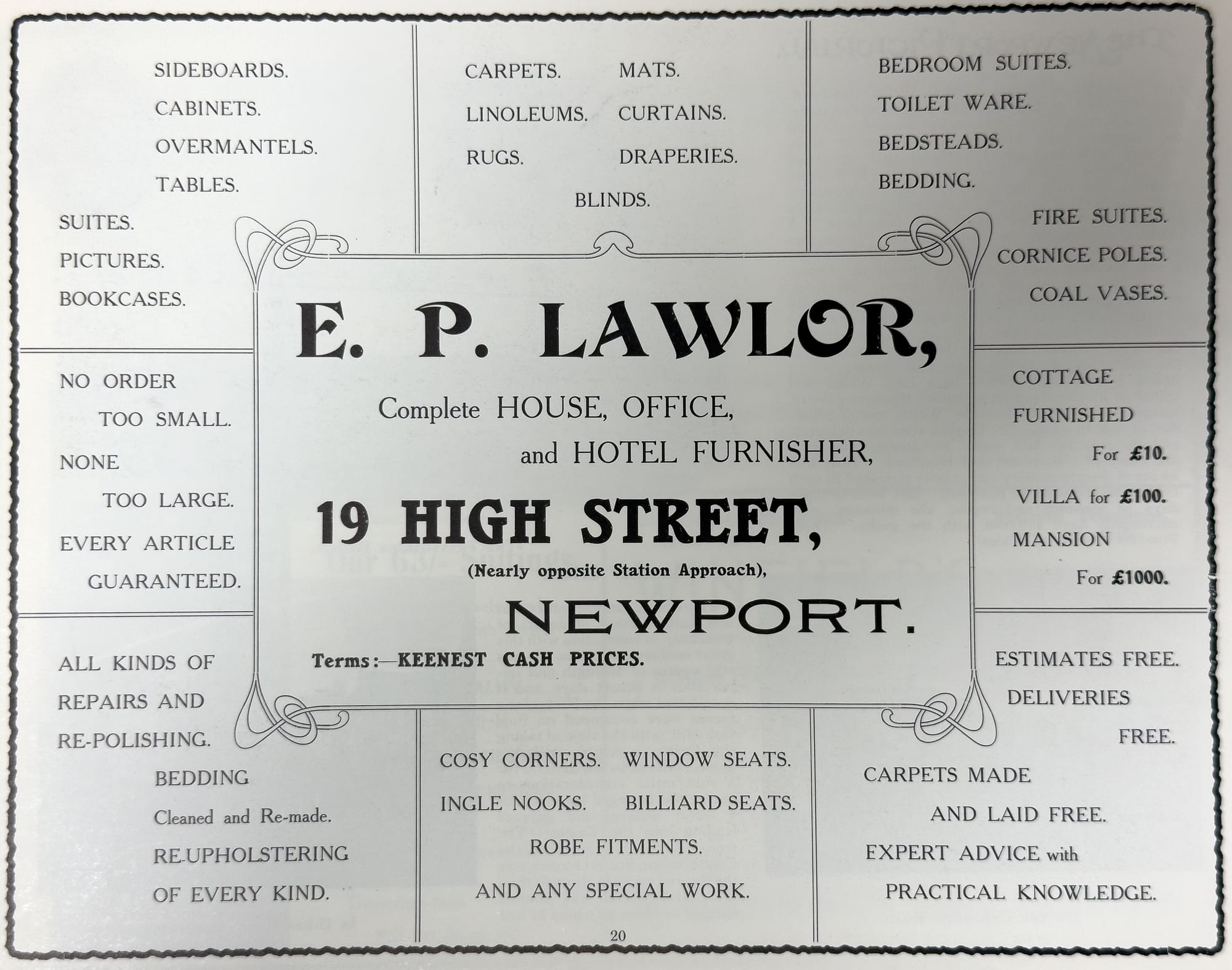

Pleasant Field Pathways
A correspondent who professes to delight in morning and evening rambles through the green fields, in the neighbourhood, where the public have a right of way, exclaims loudly against the neglect evinced with regard to a footpath running through the Fir Tree field, Stow-hill, into fields beyond, skirting the Bassalleg road, which some time since formed the subject of proceedings at law.
He says, that since the right of way in question was preserved to the public, it is grossly negligent and shameful to allow the existence of a deep and wide ditch to prevent the egress from the Fir Tree field into the next field and our correspondent suggests that those who so laudably exerted themselves to secure the pathway in question for the free use of the public, should now take some measures to render it available.
— Monmouthshire Merlin, 9th June, 1849



Pedestrianism
The celebrated pedestrian, Wm. Gale, who walked two thousand miles in two thousand half hours, undertook, on Monday last, to walk seven miles in fifty-nine minutes, on the Maindee road.
A quarter of a mile having been measured from the railway bridge towards Maindee, the Flying Eagle, as Gale is called, commenced his task, and easily and successfully performed it in 56 minutes. The evening was exceedingly warm, but Gale did not appear to be at all fatigued after accomplishing the feat. An immense number of persons were present, the road being completely lined with spectators the whole distance.
— Monmouthshire Merlin, 2nd August, 1856
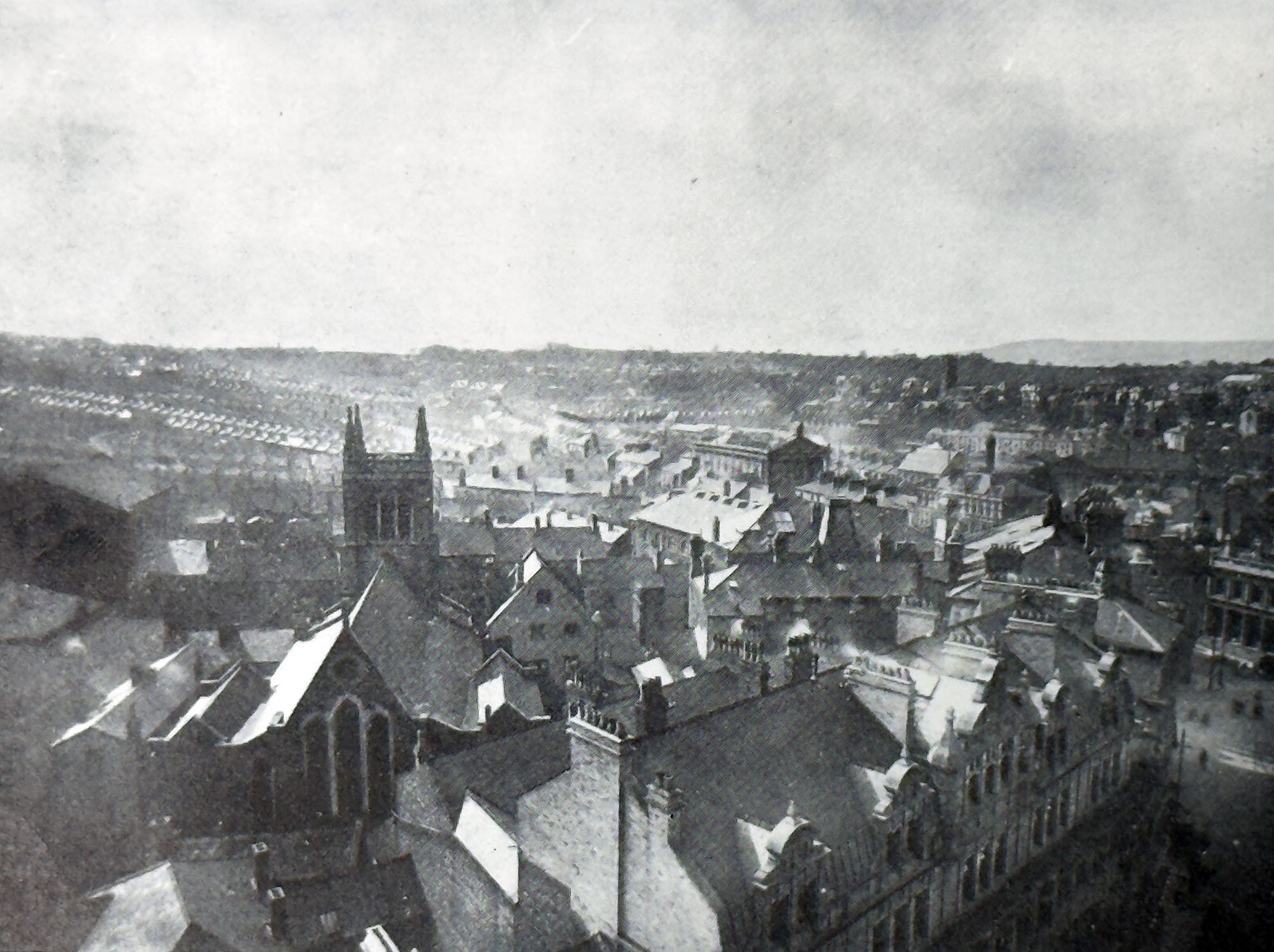

'Hill Street Pavement'
It is but just, as complaints have appeared in the MERLIN, relative to the dangerous state of the pavement in Hill-street to observe that Mrs. Jones, principal proprietor on the right side of the street, is preparing to lay down a substantial new pavement, the whole extent of her property. To other proprietors, we say, "Go thou, and do likewise." The passage by St. Paul's church front is still a subject of complaint.
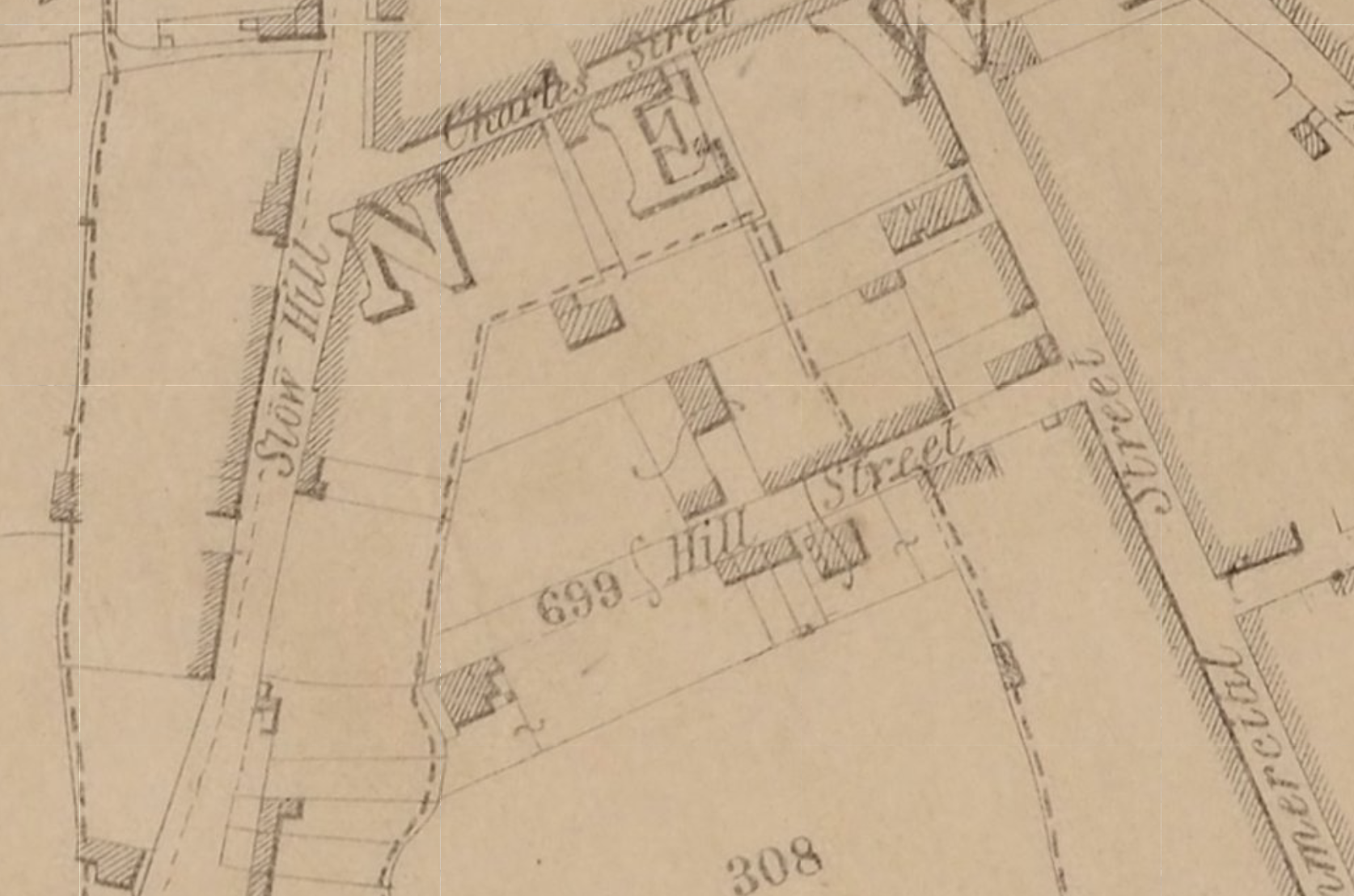
— Monmouthshire Merlin, 20th May, 1848

'Mill Street Lodging House'
The evidence furnished in a case heard at our police court last week, that witness kept a lodging house in Mill-street, in one of the rooms of which were six beds, and in another nine, where males and females slept indiscriminately, shocks morality, decency, and the generally-received notions of healthiness. This disgustingly obnoxious state of things calls for immediate attention, even in a sanitary point of view.
Independently of the duties which, in such cases as the above, devolve on the authorities, private speculation might profitably remove the nuisance, and any person possessed of a little money make a good percentage by the erection of a model lodging house. It was stated the other day by Lord Ashley, that in the model lodging houses which had been opened in London, not only had the condition of the inmates visibly improved, but where only 4d. a night was charged for a bed, the return had been 12 per cent. upon the capital laid out.
— Monmouthshire Merlin, 20th May, 1848

Supper at the Bull
About fifty of the friends of Mr. Thomas Rosser, Bull Inn, Stow-hill, consisting chiefly of tradesmen of Newport, and farmers from the neighbourhood assembled in the long room of the Bull Inn, last Tuesday evening, fur the purpose of testifying their esteem for and appreciation of the worthy host's general conduct as a landlord and a friend. An excellent supper was "laid on," and enjoyed with great zest, which was followed by toasts, songs and appropriate speeches. The company retired at an early hour, with warm professions of respect for the worthy landlord. hour, with warm professions of respect for the worthy landlord.
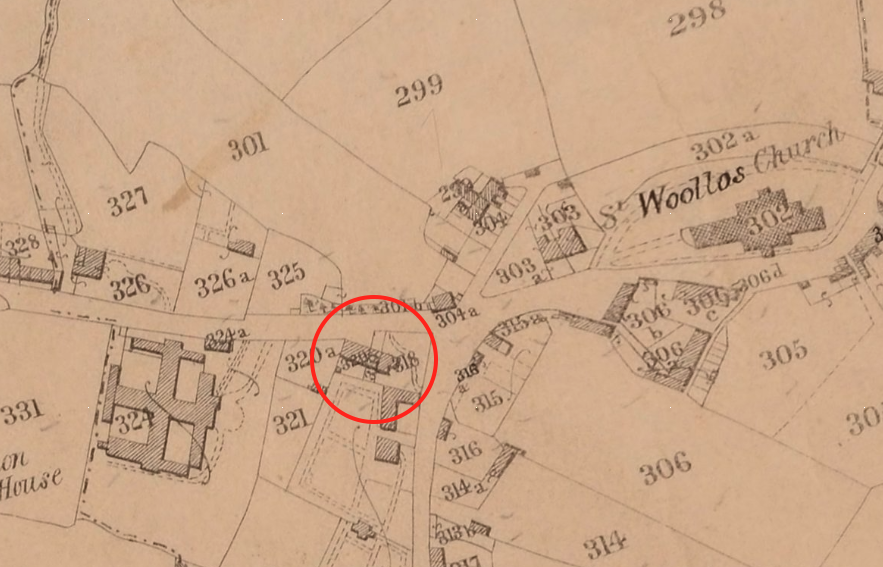
— Monmouthshire Merlin, 1st January, 1848

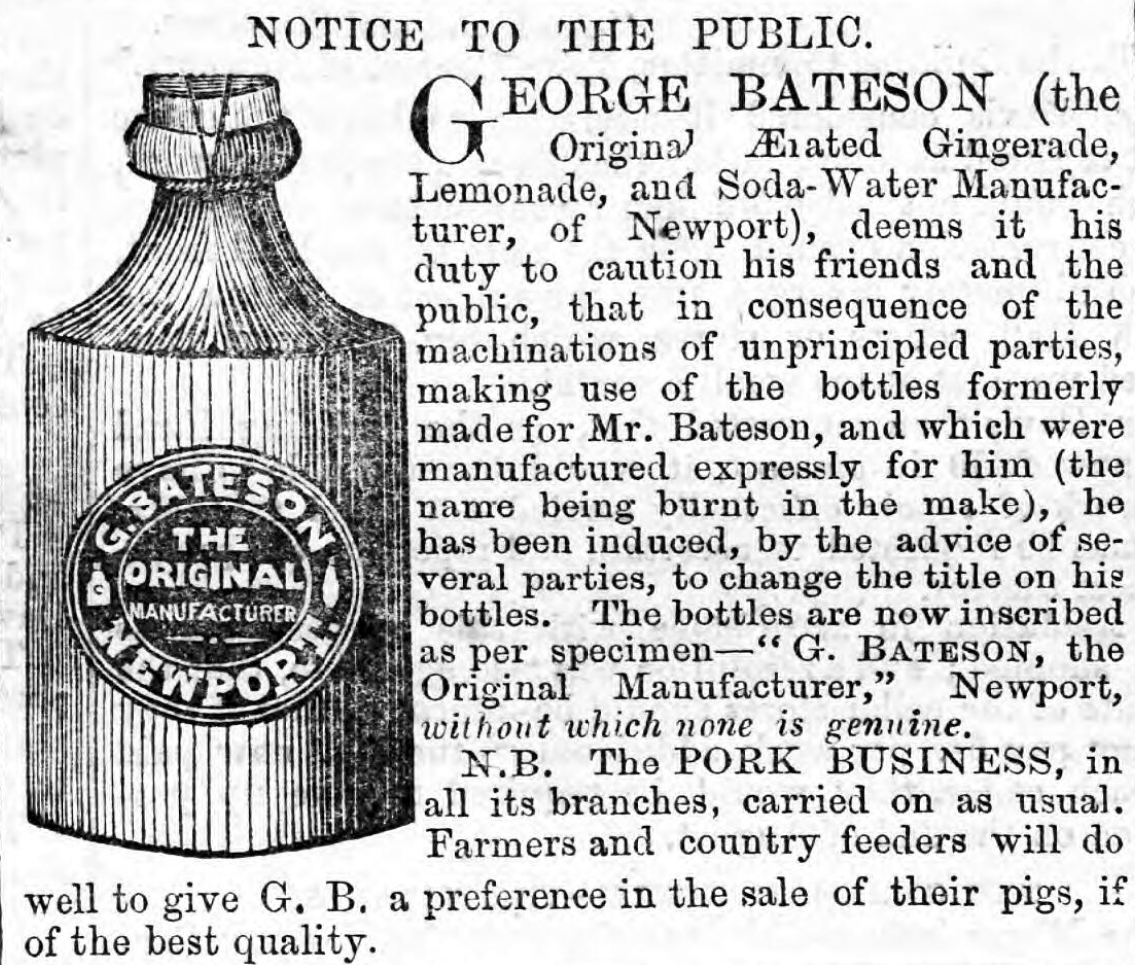

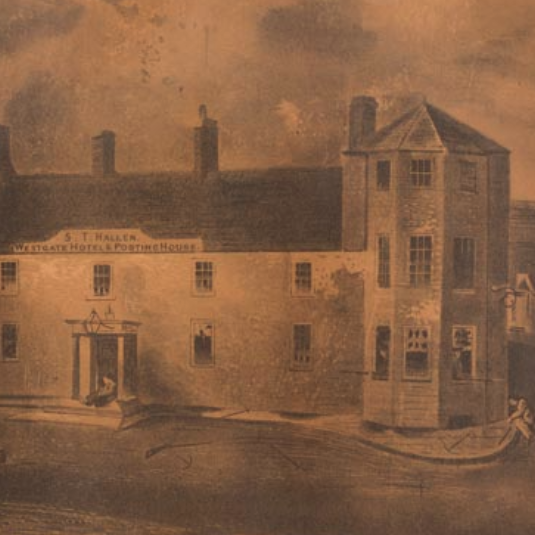
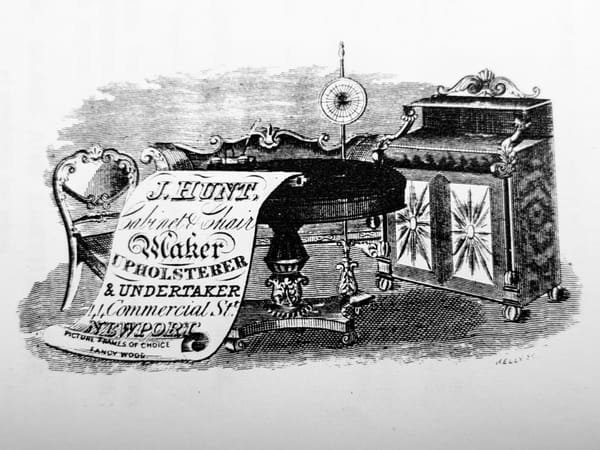
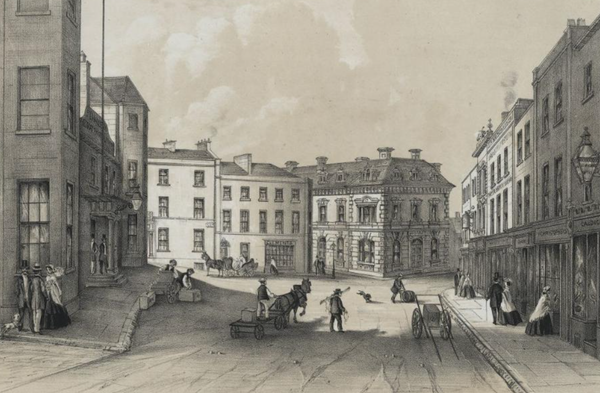
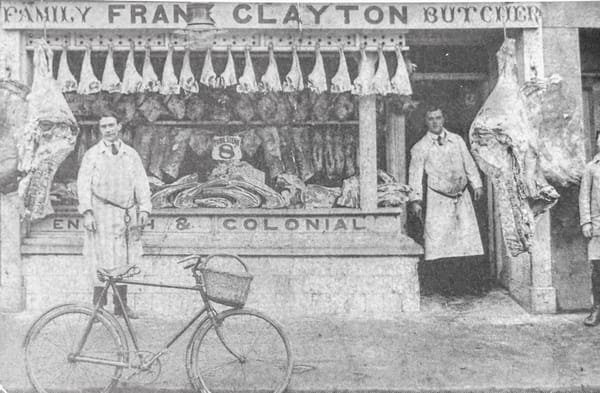
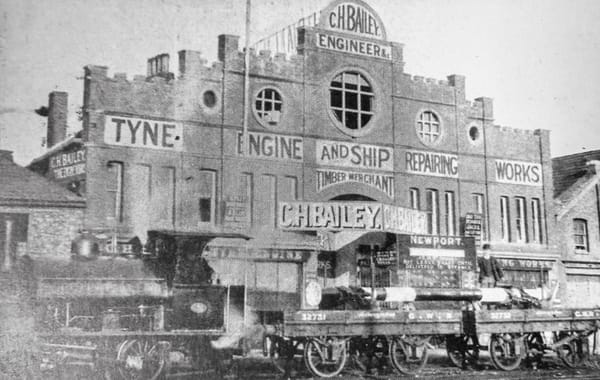

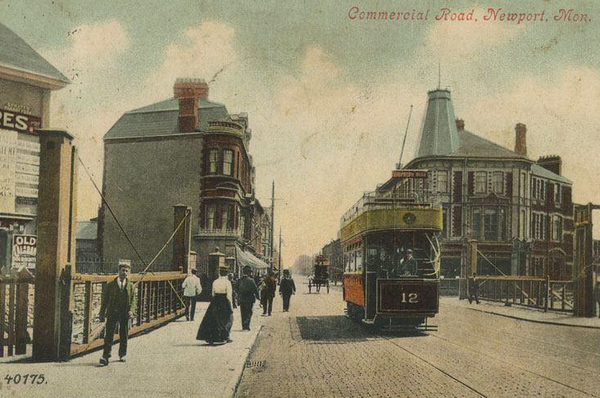
Member discussion